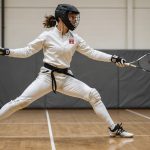Understanding Mental Fortitude
Mental resilience is a crucial component in sports psychology, especially in basketball. It refers to one’s ability to withstand stress, recover from setbacks, and keep pushing forward despite challenges. The importance of mental fortitude lies in its impact on performance – enabling players to remain composed under pressure, maintain focus, and bounce back from mistakes.
In basketball, the role of mental resilience is indispensable. Players often face high-stakes games and intense competition. Mental resilience allows them to overcome performance challenges by staying calm and collected. This ability to manage stress and maintain psychological strength during critical moments can be the difference between winning and losing.
Also to see : Maximize Your Game: Expert Nutrition Tips for UK Basketball Centers to Boost Endurance
Elite athletes employ a variety of psychological strategies to enhance their mental toughness. Techniques such as visualization, positive self-talk, and mindfulness exercises are commonly used. Visualization, for instance, involves imagining successful outcomes, which can boost confidence and performance. Positive self-talk helps in maintaining a growth mindset, encouraging players to learn from mistakes rather than getting discouraged. Understanding and developing these strategies are pivotal for anyone looking to succeed in competitive sports.
Techniques for Building Mental Fortitude
In the realm of basketball, understanding and employing effective mental training techniques can significantly boost performance. One such technique is visualization, where players mentally rehearse scenarios to build confidence and prepare for high-pressure situations. This practice allows athletes to picture themselves executing successful plays,, reducing stress during actual games.
Also read : Accelerate your game: proven strategies for uk basketball players to sharpen their offensive first step
Another cornerstone of mental training is goal setting. For basketball players, establishing clear, achievable goals can provide direction and motivation. It is essential to tailor these goals to individual strengths and weaknesses, ensuring they are both challenging and attainable. This method not only improves focus but also enhances self-discipline, leading to consistent progress.
Incorporating mindfulness and meditation practices can further strengthen a player’s mental resilience. These practices emphasize staying present in the moment, helping individuals manage distractions and maintain composure on the court. By incorporating daily meditation sessions, players can develop a deeper understanding of their mental states, enabling them to handle stress more effectively.
Overall, mastering these techniques can empower athletes to approach challenges with renewed psychological strength, fostering a mindset that embraces growth and resilience. The integration of visualization, goal setting, and mindfulness creates a robust foundation for mental fortitude, crucial for success in competitive sports.
Case Studies of Successful Players
In the world of basketball, stories of inspirational basketball players often highlight their exceptional mental toughness. Let’s explore some success stories that exemplify how mental resilience can shape an athlete’s career.
Consider the case of Luol Deng, a celebrated UK basketball player known for his remarkable mental resilience. Deng’s journey reflects an incredible ability to overcome personal and professional obstacles, including injuries and transitions between teams. His commitment to mental resilience enabled him to stay focused and maintain performance consistency despite challenges, serving as a beacon of hope for aspiring athletes.
Other success stories include players like Joel Freeland, whose mental toughness was crucial in establishing his position in international basketball. Freeland’s ability to recover from setbacks, maintain psychological strength, and leverage positive self-talk illustrates the practical application of these psychological strategies in high-stakes environments.
These athletes teach invaluable lessons on overcoming adversities, such as utilising visualization, setting specific, realistic goals, and embracing a growth mindset. Their anecdotes not only inspire but also provide actionable insights into mental resilience techniques. By applying these methods, athletes can fortify their mental fortitude, ultimately enhancing both personal and professional development in sports.
Expert Tips for Mental Resilience
Gaining insights from sports experts is invaluable in cultivating mental toughness. Psychologists emphasize that a strong mental foundation is essential for peak performance. Key practices include cognitive reframing, which involves viewing challenges as opportunities for growth rather than obstacles. This mindset is pivotal in fostering resilience.
Coaching perspectives further enrich this understanding. Coaches often highlight the importance of developing strong communication skills within a team. Effective communication can cement trust, enabling players to support one another during tough situations. When athletes understand each other’s roles and psychological states, they can collectively enhance their performance.
Practical tips for enhancing the psychological game consist of maintaining a balance between focus and relaxation. Techniques such as progressive muscle relaxation can help players soothe nerves before high-pressure games, promoting a state of calm readiness. Embracing gratitude exercises can also shift focus from negatives to positives, aiding in building an enduring mental fortitude.
Incorporating these strategies can lead athletes to not only manage stress and pressure effectively but to thrive in demanding environments. Fostering a resilient mindset is a continued journey, benefiting from proven practices and expert guidance. Such enduring psychological strength empowers players to approach challenges with a proactive and optimistic attitude.
Addressing Common Adversities
Navigating the world of basketball involves facing common adversities that test an athlete’s mental resilience. One significant challenge is handling performance anxiety, which can affect focus and execution during critical moments. Employing visualization techniques, such as imagining successful outcomes, can help players manage stress by providing a sense of preparedness.
Injury recovery presents another hurdle. Maintaining psychological strength during this period is essential for a successful return. Players should engage in positive self-talk and goal setting to stay motivated and focused on rehabilitation progress. Setting achievable milestones fosters a sense of accomplishment and encourages a gradual return to peak performance.
Furthermore, team dynamics often present unique challenges. Building supportive relationships within a team is crucial, as it enhances both morale and communication. A unified environment allows players to share adversities and develop collective strategies for improvement. Encouragement from teammates can significantly boost an individual’s perseverance, helping them navigate the ups and downs of competitive sports.
As basketball players confront these adversities, cultivating mental resilience and adopting proactive solutions can empower them to overcome obstacles. This comprehensive approach strengthens individual resolve and fosters a supportive team atmosphere, essential for enduring success in the sport.
Resources for Continuous Improvement
For athletes aiming to bolster their mental resilience, a wealth of resources is available to support continuous improvement. Books on mental fortitude in sports provide invaluable insights. Titles like “Mind Gym” by Gary Mack offer practical advice for developing psychological strength and are essential reads for those seeking to enhance mental toughness.
In addition to literature, specialised training programs focus on building mental resilience. These programs allow players to engage with structured exercises and expert coaching, tailored to their individual needs. Participants often find these programs instrumental in learning to navigate high-pressure situations effectively.
Moreover, athletes can benefit from online courses that cater to mental training. Platforms such as Coursera offer courses on sports psychology, helping athletes develop a deeper understanding of psychological strength. Engaging with such courses provides athletes with tools to apply mental resilience techniques in real-world scenarios.
The digital age also offers access to online communities, where athletes can share experiences and strategies for mental resilience. These forums enable individuals to gain support, exchange advice, and foster a sense of camaraderie. Utilising these comprehensive resources positions athletes for growth, ensuring their mental resilience is continually developed and refined.




